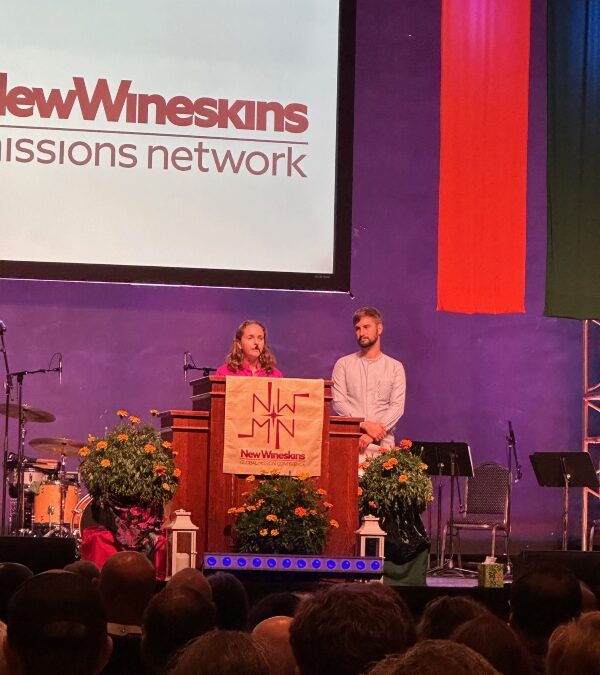
by Brendan Kimbrough | Oct 24, 2025 | SAMS Missionaries
By Wade and Chelsea Weeldreyer, SAMS Co-Directors of Missionary Care and Mission Engagement
In September, SAMS missionaries, senders, and staff gathered with 1,500 other Christians at the New Wineskins Hope for the Nations Conference in North Carolina. Over several days, we celebrated God’s redemptive work around the world and asked the Lord of the harvest to send more laborers into his field.
One simple refrain that emerged again and again, from plenary speakers to casual conversations, was this: God is on the move.
Indeed He is, and the 11th annual New Wineskins conference brought this into focus in fresh ways.
Here are a few glimpses of the ways that SAMS saw God on the move…
We saw God on the move as seasoned missionaries and individuals exploring missions shared meals together, shaping one another with questions, a listening ear, and times of sharing.
We saw God on the move as conference-goers stopped to chat at SAMS’ mission exhibit. The Spirit works through the ordinary, and many individuals stopped to connect with us because they noticed our world map, the coffee station, or, simply, a SAMS missionary practicing the ministry of presence.
We saw God on the move through our SAMS Celebration Dinner speakers – four missionaries who invited us to rejoice in how God is active in Europe, the U.S., North Africa, and Southeast Asia; and to imagine the ways in which God invites all of us to join Him in His global mission.
We saw God on the move through “divine appointments,” such as when a retired air traffic controller met a Southeast Asian global leader seeking someone to serve alongside the local church using exactly those skills. (Connections like these invite us into postures of prayerful curiosity about how God will move next!)
Finally, we saw God on the move through missional partnerships that already exist around the world. Through these partnerships, members of the body of Christ can gift one another with mutual discernment, encouragement, and joy.
In step with this, we welcome you to join SAMS in prayer in the following ways:
- Pray that missionary inquirers can move forward in mutual discernment with their home churches, with a sending organization such as SAMS, and with a receiving church wherever God leads.
- Pray that missionaries will continue to receive encouragement from the conversations, prayers, and interactions that they experienced at New Wineskins.
- Pray that senders experience much joy in their refreshed and increased connection with missionaries and the workings of God’s mission around the globe.
If you were at New Wineskins this year, we hope that you, too, are reflecting on the ways in which you sensed God on the move. Perhaps you experienced a renewed sense of discernment, encouragement, or joy along the way. We pray that the Lord meets you and blesses you where you are. And, if you were not at this year’s conference, you may decide to mark your calendar for the next one: September 20-23, 2028!

by Brendan Kimbrough | Oct 3, 2025 | Netherlands, SAMS Missionaries, The Church and Evangelism
by Johann Vanderbijl, SAMS Missionary, pastor and author serving in the Netherlands
What causes people who have once known the power and presence of the living God to stop following Him?
Moses warned Israel that it begins with complacency. When God’s people forget to honor Him as Father and Creator, they slowly relegate Him to the sidelines of life. That is not only Israel’s story—it is Europe’s story. Once the cradle of the Reformation, Europe is now a mission field. And the Netherlands, where my wife Louise and I serve, is a vivid example of what happens when nations that once knew God slowly forget Him.
The Spiritual Reality in the Netherlands
A few snapshots paint the picture clearly:
- Islam is growing: In 2015, about 4.9% of the Dutch population were Muslims. By 2023, that number had risen to 6%.
- Evangelicals are few: Only about 4% of the Dutch population identify as Evangelical believers, most of them clustered in the “Bible Belt,” far from the province where we work.
- Religion is declining: In 2010, 55% of the Dutch population considered themselves religious. By 2023, that number had dropped to 42%.
- Young people are drifting: Two-thirds of 18–25-year-olds now identify as non-religious. In our church, teenagers often tell us they are the only Christians in their schools—and confessing Jesus is viewed as ‘social suicide’.
- Even among Christians, faith is shallow: Fewer than half of Protestants attend church monthly, and three-quarters of Roman Catholics rarely or never go.
In short: the Netherlands is religiously plural, spiritually restless, and largely post-Christian.
Why North Holland?
Nowhere is this more evident than in North Holland, where we live and serve. This province has a rich spiritual history. Haarlem was home to Corrie Ten Boom. Alkmaar was the region of Brother Andrew. Missionaries like Willibrord and Boniface once brought the gospel to the Frisians here. Today, however, North Holland is one of the least churched provinces in the Netherlands. Many historic church buildings are no longer places of worship—they’ve become apartments, museums, cafés, or even breweries. They stand as silent symbols of a faith remembered but not lived. On a typical Sunday in our region, a church service might draw only a handful of elderly members. The younger generation—our neighbors, our children’s friends—are growing up without ever hearing the gospel in a meaningful way.
Why This Matters
So why Europe? Why North Holland? Because if the gospel is truly good news for all people, then it is also good news for Europeans—people who once carried the gospel across the globe, but who are now in desperate need of hearing it again.
The spiritual hunger is real:
- Loneliness is rising, especially among young people, often leading to anxiety, depression, and fear.
- Suicide is now the leading cause of death among Dutch teens and young adults. The number of youth seeking help for suicidal thoughts has risen by 75%.
Europe doesn’t just need nostalgia for a Christian past. It needs Jesus today.
Our Role—and How You Can Join Us
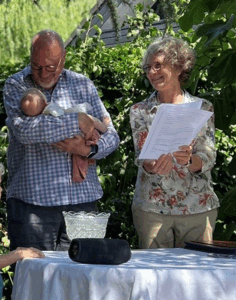
In North Holland, we meet people who are spiritually curious but biblically illiterate. Young adults who have never opened a Bible. Families searching for identity in everything but Christ. People who believe everything—and nothing. We cannot change this landscape alone. But we also cannot ignore it. That’s why partnership matters. Your prayers, encouragement, and support are not simply “keeping missionaries on the field.” They are investments in re-evangelizing a province, a nation, and a continent that has forgotten its first love.
Hope for Europe
So I return to the opening question: What causes people to stop following God? It happens slowly—through complacency, compromise, forgetting, and replacing Him with lesser gods. But what can bring them back? The faithful witness of God’s people, boldly proclaiming that Jesus Christ is Lord—not only of history, not only of other nations, but also of the Netherlands, of North Holland, of every street, family, and heart where His name has been forgotten. We believe God is not finished with Europe. Revival is possible. But it begins when God’s people take seriously the call to go, to give, to pray, and to serve. That’s why we’re here. And that’s why we invite you to join us—so that the gospel will not only be Europe’s past, but also Europe’s future.
Resources:
https://oakriverpress.com/products/patw/europe/europe-full-small.pdf
https://oakriverpress.com/
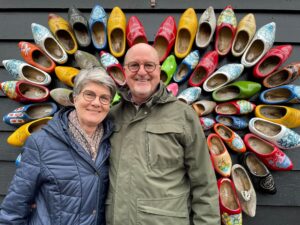
Johann and Louise VanderBijl are SAMS Missionaries serving in the north Holland city of Heiloo. Johann’s missionary roots trace back to his Great-Grandfather – an Anglican missionary in Southern Africa. The Lord revealed His love and purpose to Johann in 1980 through the witness of an unrelated missionary. Since then, his personal salvation impressed upon him the need to share with others the wonderful gift given to him, especially those lost in their own misfortunes. Johann and Louise met while they were both serving in Northwestern Namibia. Together, they try to seek first His kingdom and His righteousness in whatever God has called them to do. Johann has authored several books which can be found under the Langham Publishing imprint.
For further information and how you can support the VanderBijl’s cross-cultural work visit their SAMS page and their blog.
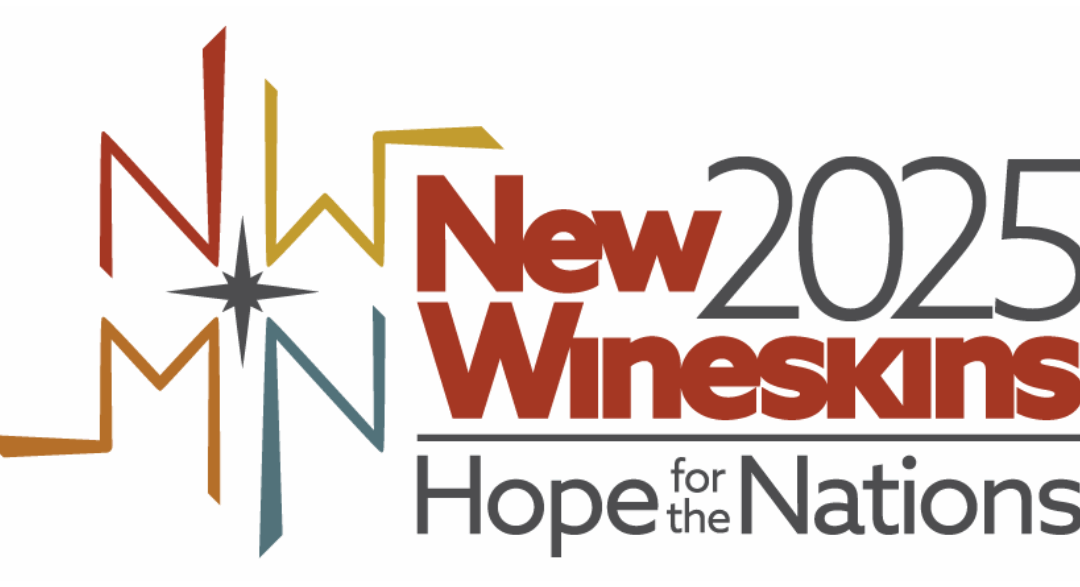
by Brendan Kimbrough | Aug 25, 2025 | #NewWineskins2025
Connect with SAMS at New Wineskins
Pre-Conference
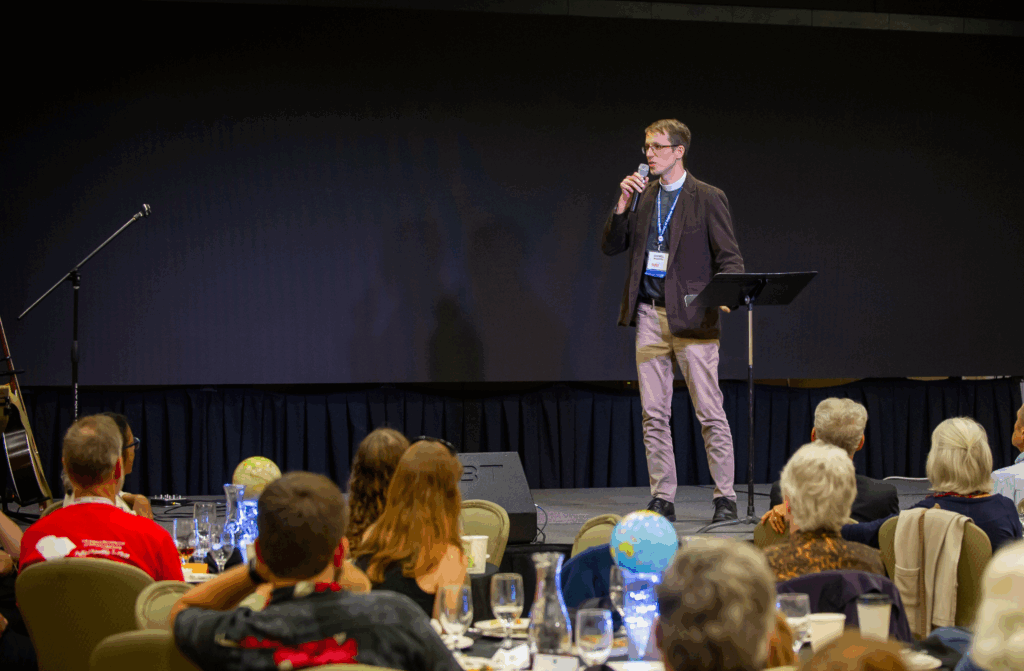
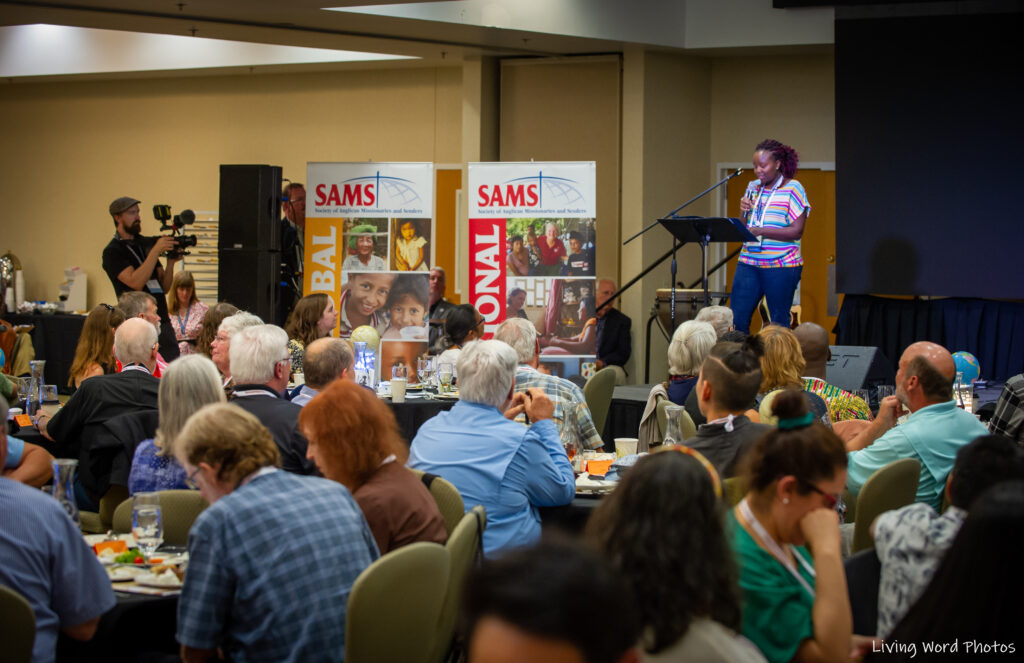
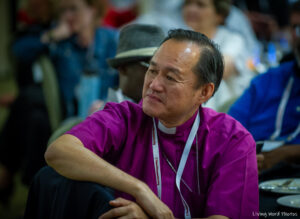
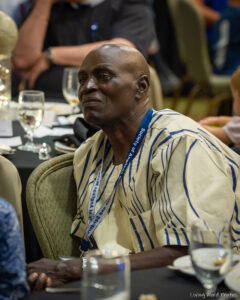
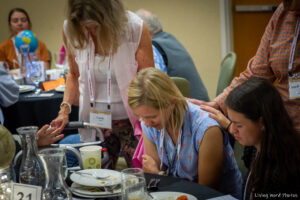
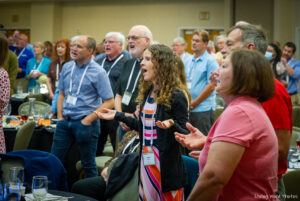
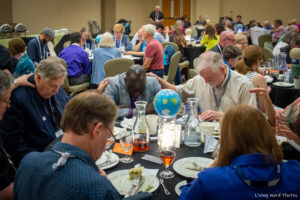
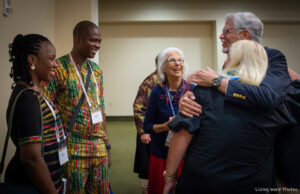
SAMS Complimentary Reception and Dinner
‘Go Where God Leads’
Wednesday, September 17, 4:00PM
Johnson Springs Building, Level 2
Cost: $0
Connect with missionaries and Anglicans from around the world and hear testimonies of God’s work in the these nations followed by prayer.
-
-
4:00 pm SAMS Reception – Engagement with Global Anglican Leaders and Missionaries
-
5:00pm SAMS Dinner – Hear Stories of God at Work Around in the World and Join in His Work through Prayer
Wednesday, September 17, 8:30am -3:00pm
Hope for the Nations through Relationships with the Global Church
Cost: $25
Join us to learn about God at work through the Anglican Church across the world. You will experience how you may join in God’s work through the vocational callings of praying, sending, learning, welcoming, going, and mobilizing. This interactive roundtable will include presentations, small groups, an opportunity to ask your questions, and optional extended time with global Anglican leaders and/or missionaries. You may have lunch, make an afternoon appointment, and/or come to the Society of Anglican Missionaries (SAMS) Reception and Dinner Banquet to connect deeper with global Anglican leaders and missionaries. Pray about joining your global Anglican brothers and sisters who will seek the Lord together with hope in Christ for the whole church to reach all nations with Good News. (You may choose to join us for any part of the day you are able!)
– Dogwood 1A
-
-
8:30 am Hope for the Nations through Sending Relationships with the Global Church begins (coffee break included)
-
12:00 pm You may choose to sign up for lunch with a SAMS Missionary
-
1:00 pm You may choose a time slot to sign up to meet with a Global Anglican Leader
Conference – MAP Talks from SAMS Missionaries and Staff
Thursday, September 18
MAP TALK I (1:30-2:15)
-
-
-
-
Justice & Mercy: Living with and Ministering Among the Poor, The Rt. Rev Grant and Wendy Lemarquand
-
The Missionary Life: Language and Culture Learning in a Nutshell, Anne Schaffer
-
MAP Talks in Spanish: Ministrando a Los Ninos y Jovenes en Latino America, Meredith Omland Holt
MAP TALK II (2:30-3:15)
-
-
-
-
Global Partnerships: Church Partnerships that Last, Ben and Cheri Weber
MAP TALK III (3:30-4:15)
-
-
-
-
Welcoming the Nations: The Nations and the Neighborhood, The Rev. Daniel Behrens
Friday, September 19th
MAP TALK IV
-
-
-
-
Welcoming the Nations: Addressing Trauma in Refugee Teens, The Rev. David and Patricia Ayres
-
Justice & Mercy: Creation Care – Fulfilling our First Commission, The Rev. Dr. Mary McDonald
-
Becoming a Missional Parish: What Missionaries Can’t Say, The Rev. Jeff Jacobs
-
Evangelism: Sharing the Gospel Across Cultures, Stewart Wicker
-
The Missisonary Life: It’s Never too Late – A Call to Mission Later in Life, Catherine and Richard Ranger
-
Prayer and Healing: Interceding for the Church and the Unreached – Lollie Twyman
MAP TALK V
-
-
-
-
Becoming a Missional Parish: Walking with Missionaries from Call to Field, Chelsea and Wade Weeldreyer
MAP TALK IV
-
-
-
-
Evangelism :A Reason for Hope-Apologetics for Evangelism, Logan Gates
-
South East Asia: Cambodia, The Rev. Gregory Whitaker
-
Prayer and Healing: Binding Up the Wounds of the Brokenhearted, Cathy Clevenger
Come talk to us!
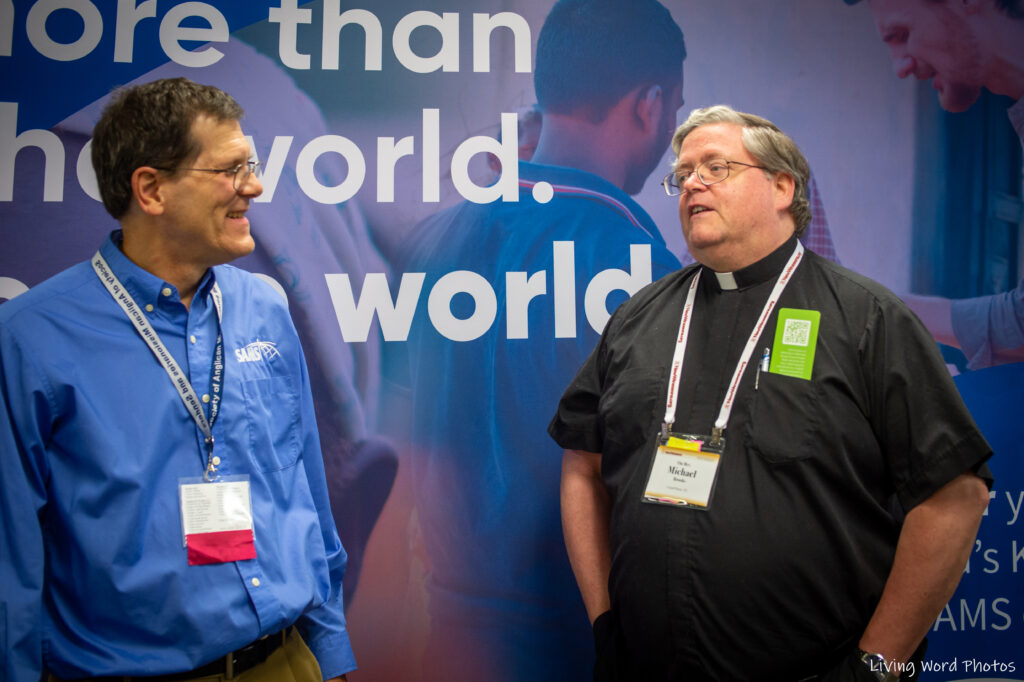
SAMS Main Exhibit
Come by the SAMS Exhibit in the Main Hall to speak with Missionaries, SAMS Staff and to share your story. You may also enjoy a cup of coffee or tea with us. As supplies last, you may savor the flavors of take-home spice blends and recipes from each continent, submitted by SAMS Missionaries and Senders, prepared especially for you!
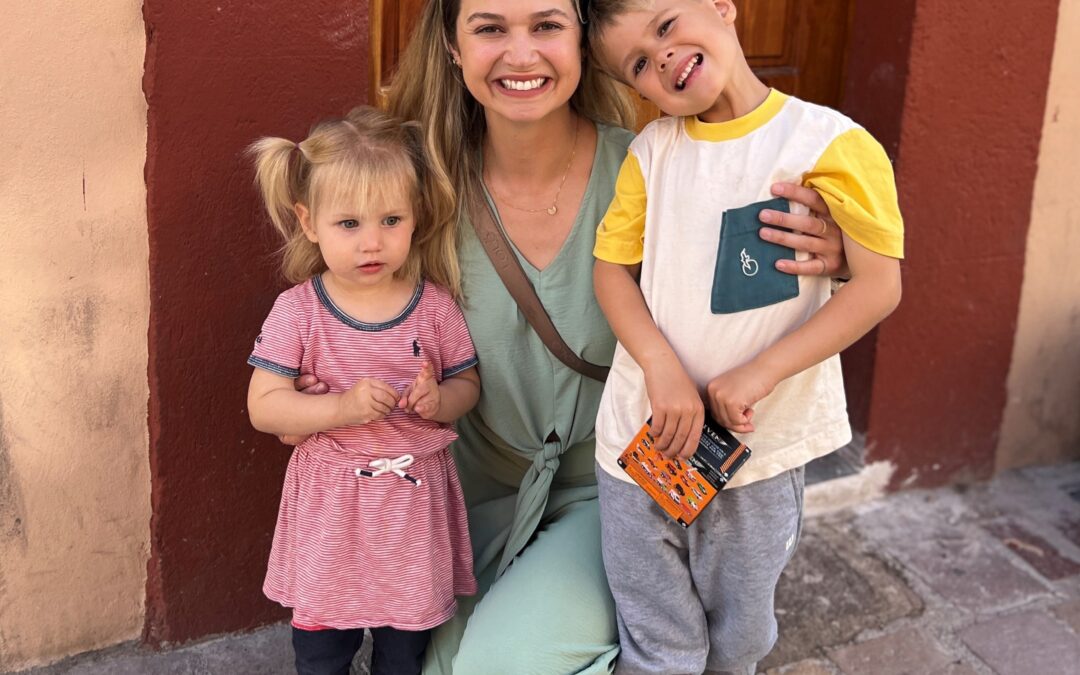
by Brendan Kimbrough | Aug 14, 2025 | Bridger Missionary, Mexico, Missionary Discernment
by Adrienne Salyards
I had the opportunity to spend the majority of my summer in Aguascalientes, Mexico with my two young children, serving as a SAMS Bridger alongside two seasoned missionaries. I had 3 goals for my time there: evangelism, encouraging the missionaries, and increasing our cultural fluency. God answered all three in beautiful ways. I was amazed at how quickly I was able to meet other moms in my neighborhood (maybe it’s a universal pattern that moms tend to seek each other out). One mom, whose 5-year-son loved playing with my 5-year-old son, took us to get haircuts for our boys at her favorite local barber (I never learned his name, because everyone only called him “flaco” aka “skinny guy”).
Another mom discovered that our toddlers shared a July birthday, and neither of us had planned anything. Together, we threw a thoroughly Mexican birthday party, with street corn, tacos, giant piñatas and a bounce house. The whole neighborhood came out and partied well past bedtime. As I got to know both women, I was able to share my testimony of God’s incredible goodness in my life and found that both of them had recently begun exploring Christianity.
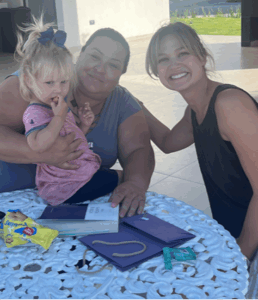
On my very last day in Mexico, one of them reached out and wanted to do a Bible study with me. Not only was I able to read the Word with her, I was able to connect her with the local missionaries and a church with a strong Sunday School program. As we said goodbye that day, she told me, “God puts the right people in our lives.” We’ve stayed in contact via WhatsApp. As I reflect on my summer in Mexico, I’m grateful to have been able to glimpse, even if briefly, the work of the Missionary. I look forward to continuing to invite neighbors to know Christ, no matter where I live.
Adrienne Salyards lives in the Washington D.C. Metro area with her two children and attends Falls Church Anglican. God led her to explore being a Missionary intern this summer while being placed with SAMS Missionaries, Roger and Joanne Griffin in central Mexico.
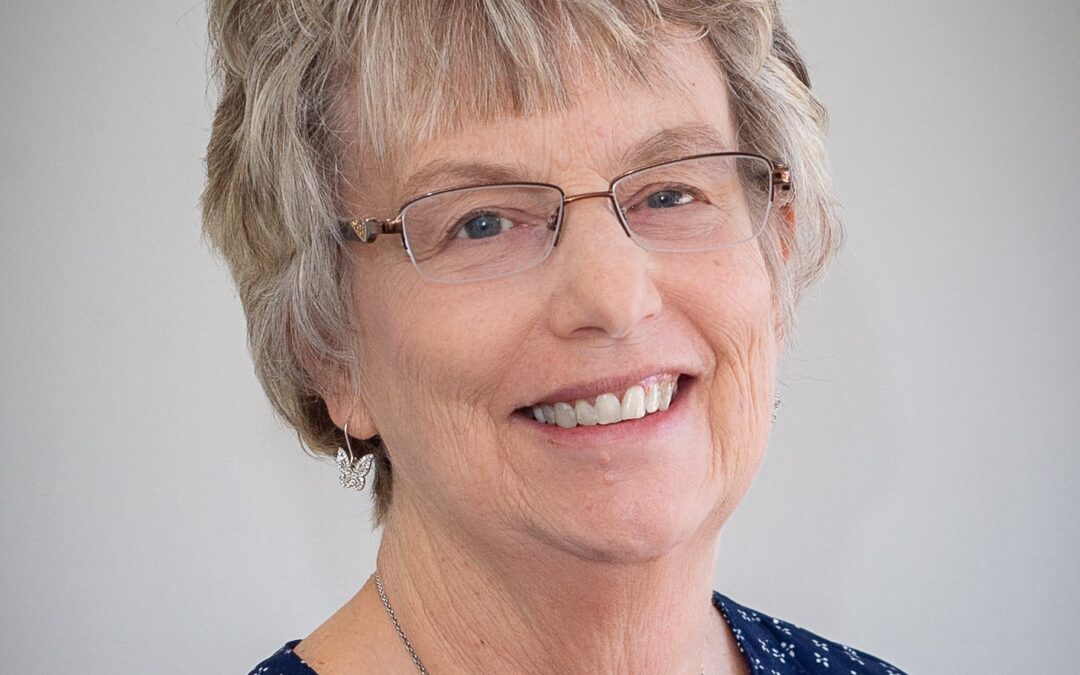
by Brendan Kimbrough | Jul 23, 2025 | SAMS Missionaries
The Society of Anglican Missionaries and Senders (SAMS) gives thanks to the Lord for the ministry of Denise Cox who has encouraged your Missionaries in their holy callings and equipped the church and other Senders to come alongside these cross-cultural servants. Countless Missionaries and Senders have reflected this gratitude in Christ through letters and calls of appreciation (See a few excerpts below).
Stewart Wicker, SAMS Mission Director, commended Denise’s ministry, “Her contributions and sacrifices over 36 years have furthered each and every aspect of our Society’s mission to share the love of Jesus across cultures in fellowship with the global Anglican church. Your Society has grown through her gifting, as well as through her enormous commitment and perseverance to serve missionaries and the church.”
Denise will continue to contribute to the mission of SAMS through a transitional part-time ministry role. Her primary focus will be the launching of a new position which will be filled by new SAMS Home Staff Team Missionaries Wade and Chelsea Weeldreyer who will share the responsibilities of caring for your Missionaries and encouraging Senders.
Your prayers for Denise’s next steps in this new stage of life as well as for her husband Phil and extended family are valued!
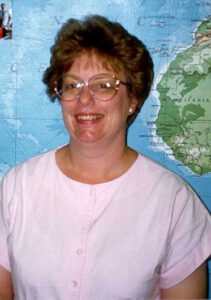
Denise in 1989
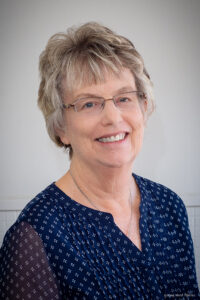
Denise in 2025
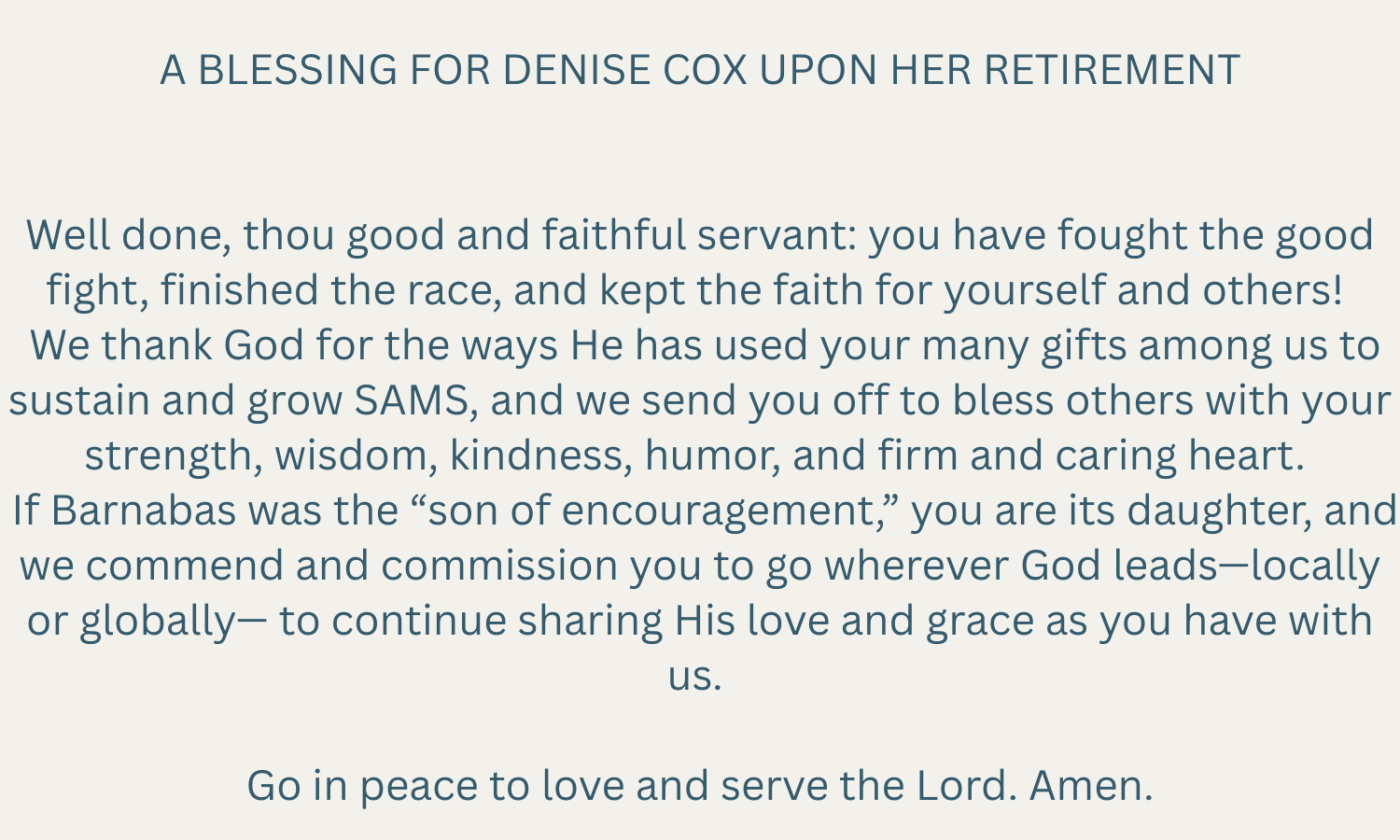
Excerpts from a few of the letters received from Missionaries
Thank you for being such a steady hand, guiding us as missionaries, speaking truth, but also giving us ideas, and confidence. God has used you to not only help us get started in missions but to sustain us over the years.
— Dave and Lucy Chaves
I’m grateful for your wisdom, fantastically dry humor, and godly leadership. You always had time for me.
— Jessica Hughes
[We thank God for] LONG phone conversations where you did almost all the listening and just let us unload, and through it all, your unceasing support in prayer for us, our family, even our extended family! You always had time for us, even if you had a million other things to do. Denise, you gave selflessly over these years and we are very grateful.
— Russ and Heidi Smith
If the works Denise has done are of an invisible kind that we cannot lay out like tunics and garments for display, they are no less real, and enduring, and treasured. That her blood, sweat and tears poured out for the kingdom, its workers, and the world, have been gold, silver and precious stones is for heaven to announce on that Day.
— Jim and Nanci Long
As the song goes: “There’ll never, ever, ever be another you.” We love you, Denise.
— Richard and Martha Menees.




















